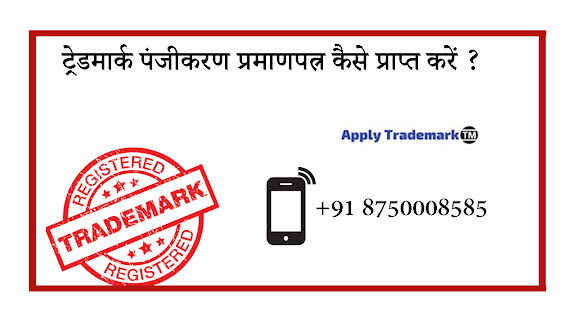Trademark Assignment Agreement
The process of legally transferring trademark title from the main owner (known as the assignor) to the receiver is referred to as trademark transfer or allocation (known as the assignee). The assignor has the same rights as any other property/asset owner to sell, license, or transfer the trademark. To transfer trademarks, the Trademark Assignment Agreement(TAA) or Trademark Licensing could be used. This blog will teach you everything you need to know about trademark assignment. You will also learn about the process of registering a trademark in India.
Let Us Discuss Trademark Assignment Agreement
It Agreement
refers to the transfer of a Trademark owner's rights, title, or name, as well
as interest in a service mark/Trademark. The transferring party, also known as
the assignor, transfers property rights in the mark to the receiving party,
also known as the assignee. However, a Trademark Assignment is not the same as
a license; a license only grants permission to use a trademark but does not
transfer ownership rights and is associated with TTA or Technology Transfer
Agreements. Such agreements are required because an additional Intellectual
Property (IP) can put a company in jeopardy. Furthermore, the Assignment is a
critical component of its monetization.
Considerations for drafting an effective Trademark assignment Agreement
Ø The Assignment and the obligations
outlined therein must not jeopardise the owner's rights.
Ø It must be specified whether the
assignment is with or without goodwill.
Ø The drafting of the said agreement
must demonstrate a clear purpose of the transaction, and the clauses of the
said agreement must flow from that purpose.
Ø The geographical scope of locations
where the assignee would have rights and value in the trademark must be
expressly mentioned.
Ø It must be explicitly stated whether
the trade dress (if any) is also being transferred along with the trademark.
Ø If the trademark being assigned
includes the name of a living or deceased person, written permission from that
person (or their representative) is required.
Ø Mandatory form and content
requirements:
a) The contract must be in writing.
b) The parties involved, namely the
owner or assignor and the buyer or assignee, must be clearly identified in the
Agreement.
c) The nature and value of the
consideration for which ownership is being transferred must be clearly stated.
d) It is critical to clearly specify the
date and day of assignment in order to avoid complications in the event that
disputes arise in the future.
e) Instead of simply stating an
agreement for the transfer of trademarks in the assignor's ownership, relevant
applications or registrations must be clearly mentioned.
f) The agreement must be duly executed,
which means it must be notarized, stamped in accordance with the applicable
Stamp Act, and subject to stamp duty.
g) The signatures and witnesses, as well
as the date and location of execution, must be clearly provided.
Ø Distinctive provisions
a) It must be stated whether or not the
agreement is binding on the legal heirs.
b) Any agreement must include a provision
for the assignor's cooperation and assistance to the assignee in enforcing,
recording, or taking any legal action in the near future. Furthermore, the
party who will bear the expenses must be specified.
What is the difference between trademark 'assignment' and
'transmission'?
The
assignment of a trademark occurs when the 'ownership' of the mark is
transferred from one party to another, with or without the business's goodwill.
In India, any assignment of a registered trademark must be recorded in the register
by filing Form TM-P along with the prescribed fees. In the case of an
unregistered trademark, all assignments must be registered with the Registrar
of Trademarks on Form 23 or Form 24.
The transfer
of a trademark from one person to another is accomplished through the execution
of a properly executed Trademark
Assignment Agreement. Transfer of rights by operation of law, delegation to
a deceased person's personal representative. Transfer of rights by operation of
law, devolution to a deceased person's personal representative, and any other
mode of transfer that is not assignment is also considered transmission of trademarks
under Section 2 of the Act. Sections 37 to 45 of Chapter V of the Act prescribe
the form and procedure for Trademark Assignment and transmission in India.
Advantages of Trademark Assignment
Ø Aids in the preservation of the brand
and the expansion of the business.
Ø Analyzes the value of the brand and
secures the time and money spent on brand creation.
Ø Protects the rights of both the
assignor and the assignee.
Ø Assists the owner of the brand name
in preserving the brand and the business's goodwill.
Different Types of Trademark Assignment
Ø Complete Assignment- In this case, the
Brand Name Owner/Brand transfers all of its rights to another entity, including
the right to transfer, earn royalties, and so on. The assignee is entitled to
all of the rights granted to him by the original owner.
Ø Partial Assignment- In this case, the
transfer of ownership is limited to specific goods or services as agreed upon
by the parties in the assignment agreement. Complete and partial agreements can
be reached with or without goodwill.
Ø Assignment with Goodwill- In this
case, the value and rights associated with a brand name are transferred to a
third party using goodwill.
Ø Assignment without Goodwill- This
occurs when the owner of the brand limits the buyer's rights. The buyer is not
permitted to use such a brand on items previously owned by the original owner.
Ø Assignment of Registered Trademarks:
Section 38 of the Act states that registered trademarks can be assigned in
whole or in part, with or without the business's goodwill.
Ø Unregistered Trademark Assignment-
Section 39 of the Act states that it can be assigned with or without the
business's goodwill.
Conclusion
The
assignment agreements allow the owner to transfer their ownership rights for
commercial purposes while ensuring that the financial gains go to him or her.
It is a written, enforceable contract relating to the transfer of rights in a
solemnise agreement between two people. This agreement also includes the sale
of rights, which gives the assignee full ownership of the assignor's
trademarks. TAA facilitate innovation and reap the benefits of such future
creations, and are essentially a subset of Technology Transfer Agreements,
which cover all Intellectual Property assignment agreements. So, in this article, we will explain Trademark Assignment Agreements. If you have any trademark-related questions,
such as assignment, registration, or search, please contact the legalraasta team.


.jpg)
Comments
Post a Comment